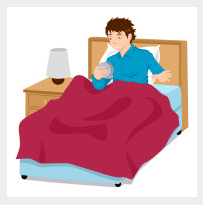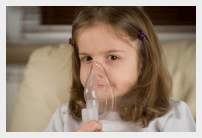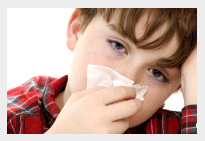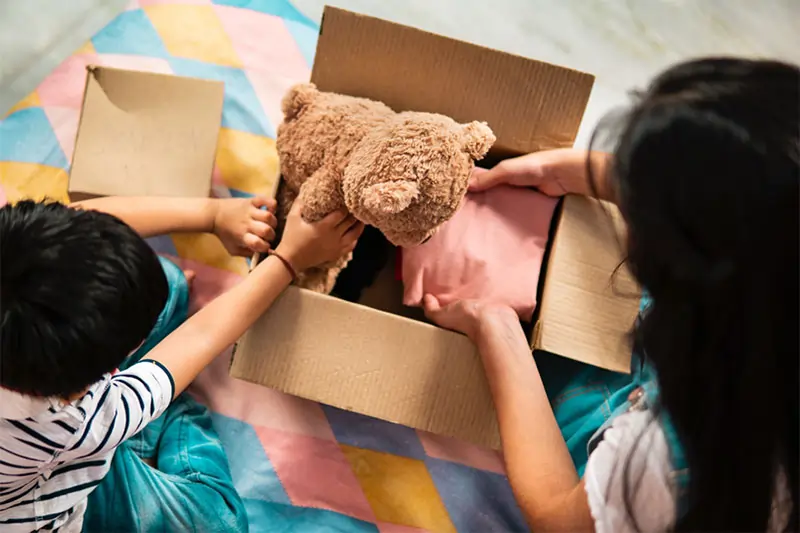Allergies in Kids – A Brief Outlook
Allergies in kids?! Yes. Common allergic reactions in kids and how to spot it?
 Allergy is nothing but a kind of sensitivity to something new or sensitivity to adapt a change. Simply, our immune system has certain functionalities, where allergic reaction refers to an overreaction of our immunity. The immunity could not response, react and control the allergy triggering substance although the immune system is meant to fight off all health hazards.
Allergy is nothing but a kind of sensitivity to something new or sensitivity to adapt a change. Simply, our immune system has certain functionalities, where allergic reaction refers to an overreaction of our immunity. The immunity could not response, react and control the allergy triggering substance although the immune system is meant to fight off all health hazards.
Kids allergies – an overview
Kids are not exceptional to catch allergies. In fact little ones are prone to develop many allergic reactions. Baby allergies in a few instances are inherited genetically. For instance, allergy to certain types of foods, allergy to penicillin, etc.
What causes baby allergy? The dust mites cause allergy. When you vacuum clean your upholsteries, it will bring an allergic reaction. The perfume your spray or even the fragrance causes allergic reaction.
Food allergy, one of the common types of baby allergies generally catches the baby when introducing new foods. Of course in rare cases, if the breast-feeding mom catches any allergy, it will pass on to baby. So, moms are recommended to eat healthy, nutritious and baby friendly foods (foods that don’t affect the breast-feeding) nothing but fresh, hygienic and home cooked!
Common foods that can create allergies in baby include:
- Fish and all sea foods
- Eggs
- Wheat
- Nuts, especially peanuts
- Soy products
- Cow’s milk
Symptoms of food allergy in kids are vomiting, diarrhoea, bloated stomach, cramps and
crankiness in stomach, soreness, and itchy skin.
 Secondly, eczema, rashes and itchy skin is the other common type of allergy in kids. Prolonged itches, dry and flaky skin are the symptoms of allergy in kids. This can be caused due to food or exposure to reactants or simply pollution. Sometimes, the baby clothes (detergent used to wash clothes) can cause allergies. In many kids, eating foods that has artificial colors may cause severe allergic reaction in skin.
Secondly, eczema, rashes and itchy skin is the other common type of allergy in kids. Prolonged itches, dry and flaky skin are the symptoms of allergy in kids. This can be caused due to food or exposure to reactants or simply pollution. Sometimes, the baby clothes (detergent used to wash clothes) can cause allergies. In many kids, eating foods that has artificial colors may cause severe allergic reaction in skin.
Even certain types of aroma can cause allergic reaction in children. As stated earlier, kids catch allergies when there is a history of allergic reaction to any kind of substance in the family. It can be a medicinal allergy, food allergy, hay fever, asthma or eczema. The symptoms of the allergy will vary based on the organ infected or more like to get infected.
How to spot baby allergies?
Often many parents fail to differentiate the symptoms of cold as well as an upset stomach and allergy. It is because the symptoms of these minor health issues are the warning sign of an allergic reaction in kids.
Common symptoms of simple passing health ailment include the following:
- Running nose
- Rashes and redness of skin
- Itchy skin
- Upset stomach, loose stools, oddness in stomach, stomach pain, bloated stomach etc.
- Dry or sore throat
- Watery eyes
- Interrupted sleep
- Fatigue
- Difficulty in breathing
 While the above mentioned symptoms are common associated with cold, body ache, stomach upset, fever, and cough, many times these are indicators of allergy in kids. However, if these symptoms are fleeting and not troubling your baby for no more than a 4 – 5 days, nothing to worry about the allergic reactions. If they are prolonged, then be assured that it is an allergic signal.
While the above mentioned symptoms are common associated with cold, body ache, stomach upset, fever, and cough, many times these are indicators of allergy in kids. However, if these symptoms are fleeting and not troubling your baby for no more than a 4 – 5 days, nothing to worry about the allergic reactions. If they are prolonged, then be assured that it is an allergic signal.
If you have identified the factor triggering the allergens, then solution is easy. Besides, your baby is the best indicator of the allergic reaction. The little one is a great communicator and if you find any changes in active behavior, reduced appetite, refuse to eat, extreme tiredness, etc for more than a week, it indicates allergy.
Preventing and easing out baby allergies:
 Prevention of allergy in kids is very simple. Generally, the allergic reaction worsens or your baby catches allergy only when the baby is exposed more to the allergens or triggered by the accumulation of the various factors. For instance, if your child show up the signs of cold, say a sore throat, taking out your little one outdoors, can trigger the symptoms. Simply, dust mites, or cleaning the home can cause allergic reaction in kids.
Prevention of allergy in kids is very simple. Generally, the allergic reaction worsens or your baby catches allergy only when the baby is exposed more to the allergens or triggered by the accumulation of the various factors. For instance, if your child show up the signs of cold, say a sore throat, taking out your little one outdoors, can trigger the symptoms. Simply, dust mites, or cleaning the home can cause allergic reaction in kids.
Providing safe, secured and ultra hygienic surroundings is the top most factors that could simply prevent your baby from allergies.
Secondly, don’t feed any foods mentioned about that could cause allergic reaction. However, the above mentioned food list is not conclusive; your baby may develop allergic reaction to other foods too! To avoid food allergies, don’t feed foods containing preservatives until 3 years.

